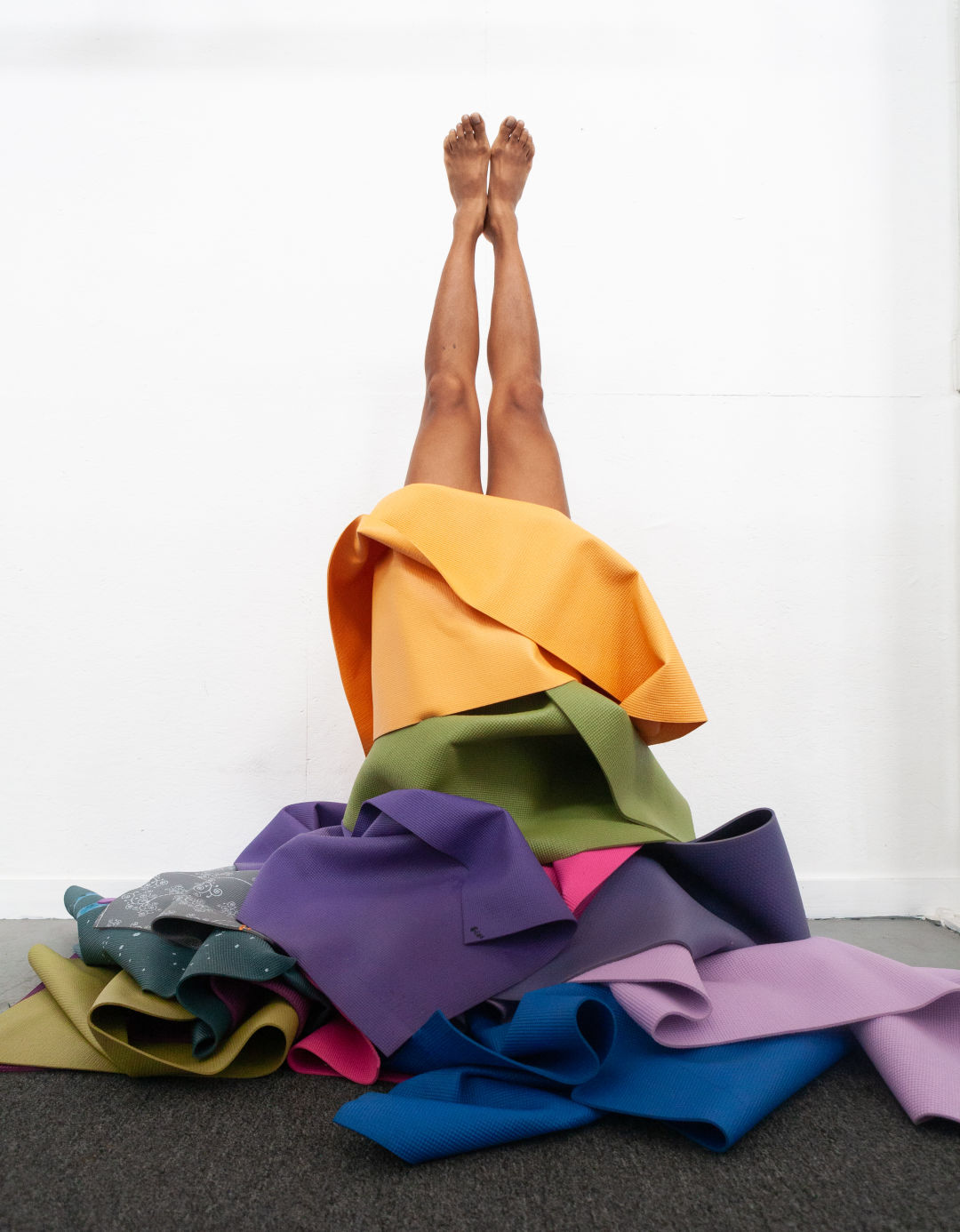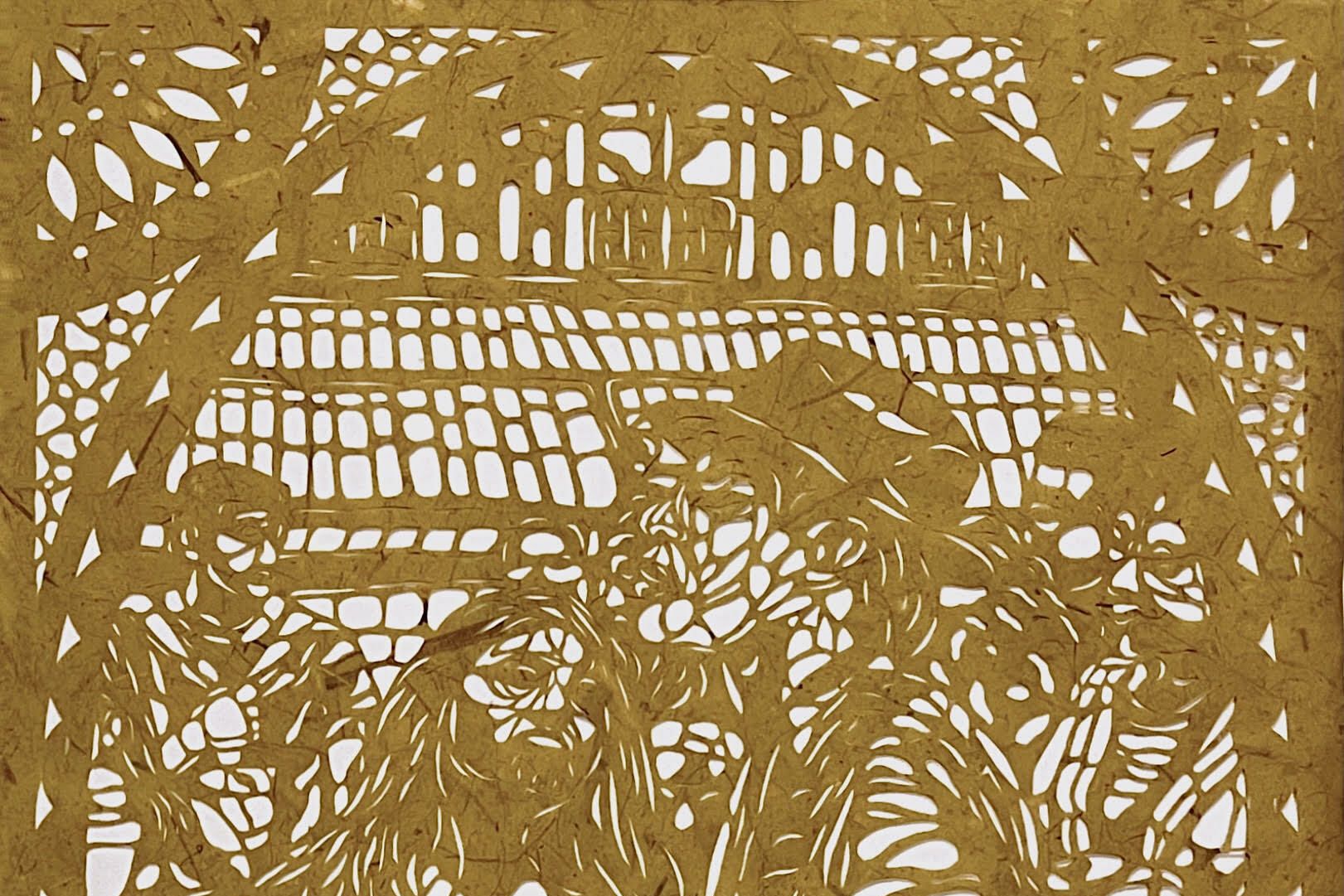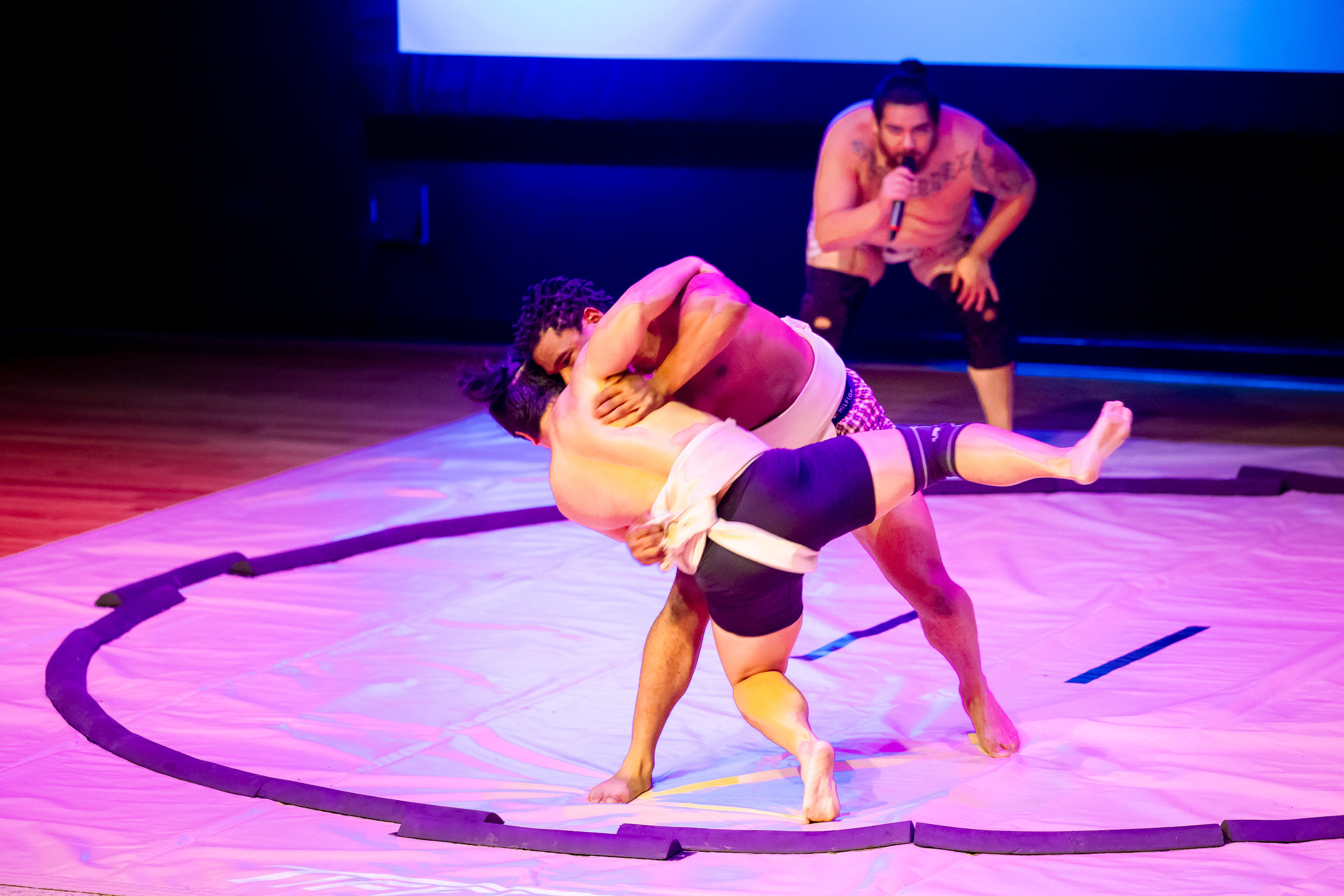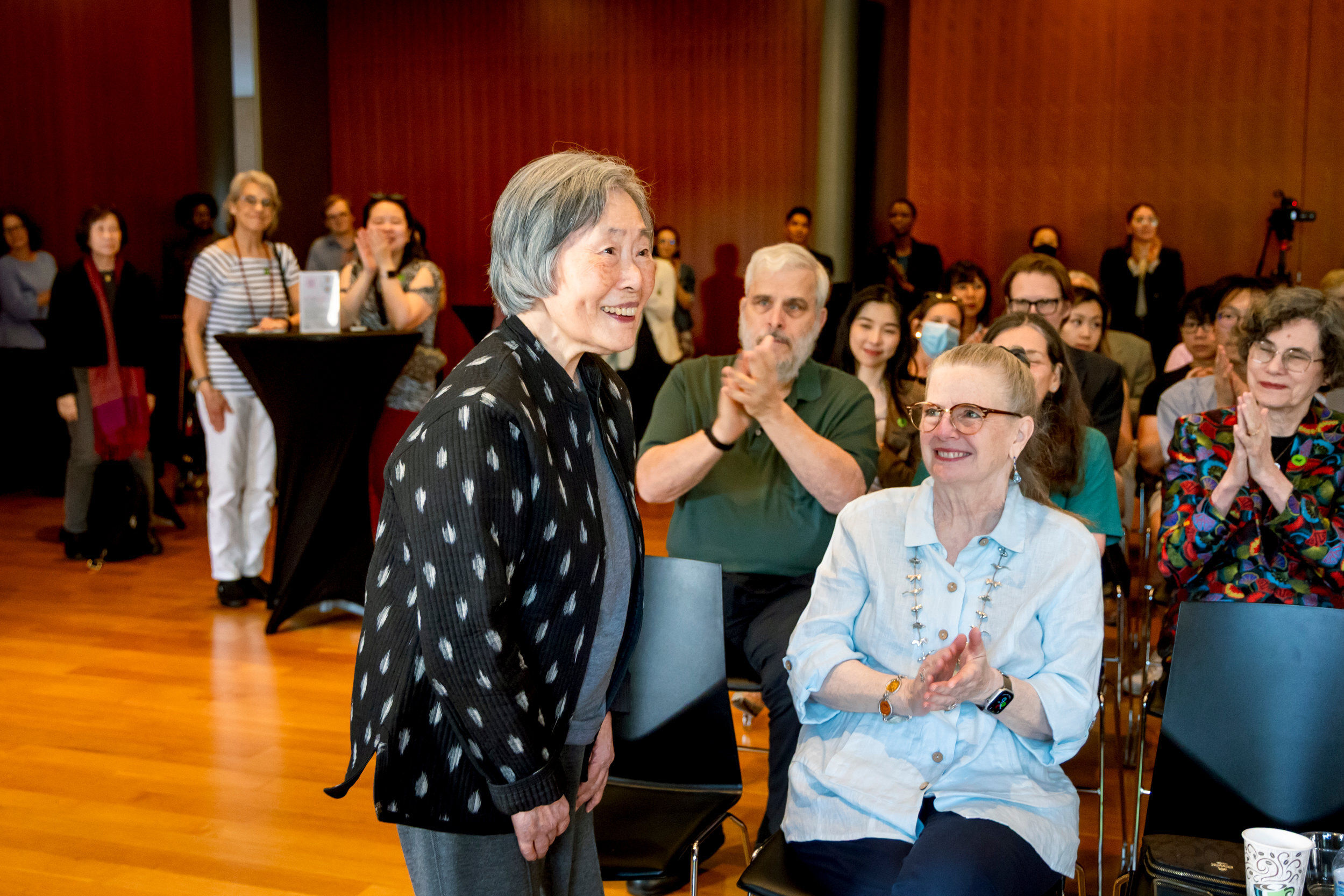Visual Artist Preetika Rajgariah’s Acts of Reclamation

Preetika Rajgariah, Sole, 2019. Digital photo. Courtesy of the artist
Image: Preetika Rajgariah
Preetika Rajgariah isn’t afraid of making others uncomfortable. Born in India and raised in Texas, the multidisciplinary artist uses humor and a range of cross-cultural materials to critique how American culture has transformed yoga from an ancient, spiritual practice to a commodity. Working across painting, video and performance, Rajgariah's work explores the tension within cultural appropriation.
“I find great hilarity and joy in the things that I do and that’s what I love about my work,” she tells Houstonia. “You can find the comedy within it. I work very much from my life and my experience, so in that sense, the work is the most original, authentic and true to itself.”
Rajgariah is one of four artists recently chosen for the second iteration of Artists on Site, a seven-week residency program at the Asia Society Texas Center. Upon entering her studio on a sweltering Tuesday afternoon in August, I was greeted by the artist and an assortment of objects: a colorful array of yoga mats, a pile of Desi material draped over an ironing board and a table lined with pairs of old tights accumulated during her early years as an ice skater. Rajgariah is using the residency as an opportunity to expand her focus on performance, which for the past few years, has become a crucial part of her practice. “It’s so different from object making. I just want to make a mess and use my body to move through these materials,” she says.
Growing up in an immigrant family in Jersey Village, Rajgariah was one of a handful of Indian kids in her schools. She had plans to pursue a career as a doctor and used ice skating, art-making and traditional Indian dance as creative outlets from the pressures of academia. Reflecting on her youth, Rajgariah recalled being highly skilled in ice skating but frustrated by the fact that she spent years “relying on these discolored tights to keep me warm and alive.” The tights, stored by her mother for over 10 years, now live in her studio as the basis of a future performance piece.
In an effort to return to art-making, Rajgariah abandoned her pursuit of the medical field. Two years after graduating college in 2008, she completed an artist residency at the School of Visual Arts in New York City. This marked a pivotal point in her journey as an artist, an experience that opened the possibilities of her future success. After her return to Texas, she began to tap into Houston’s queer, Indian and artist communities. During that time, she worked a number of odd jobs, from teaching to wedding photography, in order to support herself while she continued to make work.
In 2019, Rajgariah was the focus of a solo exhibition at Women & Their Work Gallery in Austin, Texas. The exhibition, entitled Wild, Wild Country, featured her pivotal performance piece Waiting to Exhale, 2019 which involved a three-channel video alongside nearly 90 yoga mats draped and arranged in the shape of a Hindu swastika. Although condemned for its association with antisemitism and Nazi oppression, the swastika is a positive symbol of wellness in the Hindu faith. For Rajgariah, reclaiming this appropriated symbol is an act of resistance to the ongoing cultural whitewashing in the Western world. The performance caused lots of mixed reactions from the public but left a lasting impression on the artist. “It was a very proud moment for me. I like teaching people without teaching and encouraging them to do their research. A lot of my interests are in that space of tension. Where there is tension, there is potential,” she tells Houstonia.
With one month left in the residency, Rajgariah plans to continue exploring performance and her efforts towards returning yoga to its roots. Like many contemporary artists navigating life as artists in Houston, Rajgariah has mixed feelings about the city's art scene. "The thing about Houston is that I don’t think it fully values its artists. In order to mean something here, you have to leave and come back. Houston is a great place because it's affordable and accessible, but it's not my ceiling for sure."




